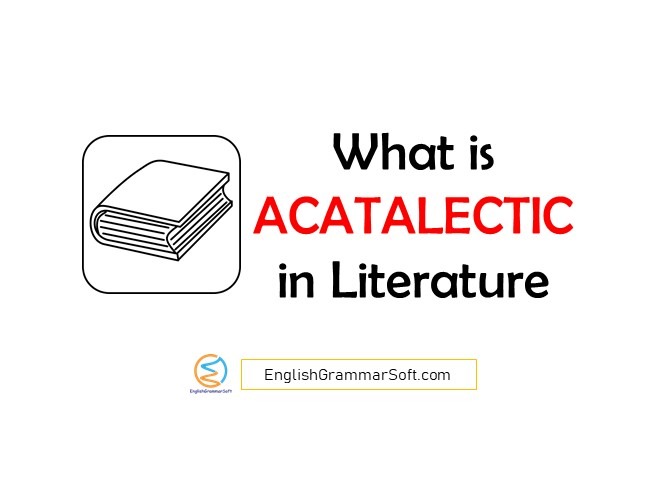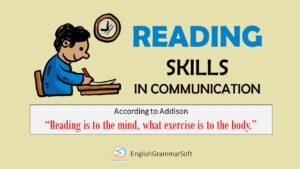What is Acatalectic in Literature?
What is acatalectic in Literature
When unstressed syllables are not dropped at the beginning, or the end of a line, they are said to be acatalectic.
An acatalectic line of verse is one having the metrically complete number of syllables in the final foot.
The term is of limited significance or utility when talking about poetry written in English, at least by comparison to its antonym. For example, to describe Shakespeare’s sonnets as having been written in iambic pentameter acatalectic would be factually accurate, but redundant and never said, because iambic pentameter is presumed to be acatalectic unless specified as being catalectic.
However, in very rare contexts where catalexis might be considered probable, explicit expression of the verse’s metrical completeness may be achieved by using the term.
If a line lacks one or more unaccented syllables it is then hypercatalectic (or hypermetrical, redundant, or extra metrical).
In this stanza from, William Blake’s Art and Artists the first line is catalectic, the third acatalectic, and the fourth hypercatalectic:
When S’ Joshua Reynolds died
All Nature was degraded;
The King dropp’d a ter into the Queen’s Ear,
And all his pictures Faded.
Explanation:
When Sr Joshua Reynolds died (the first line is catalectic because the word “died” lacks one syllable).
The Kind dropp’d a tear into the Queen’s Ear, ( the third line is acatalectic because the word “into” has two syllables and ‘Queen’s ear’ has also two syllables).
Ann all his pictures Faded (the fourth line is hypercatalectic because the word “pictures” has two syllables and “faded” has also two syllables.
Further Reading






